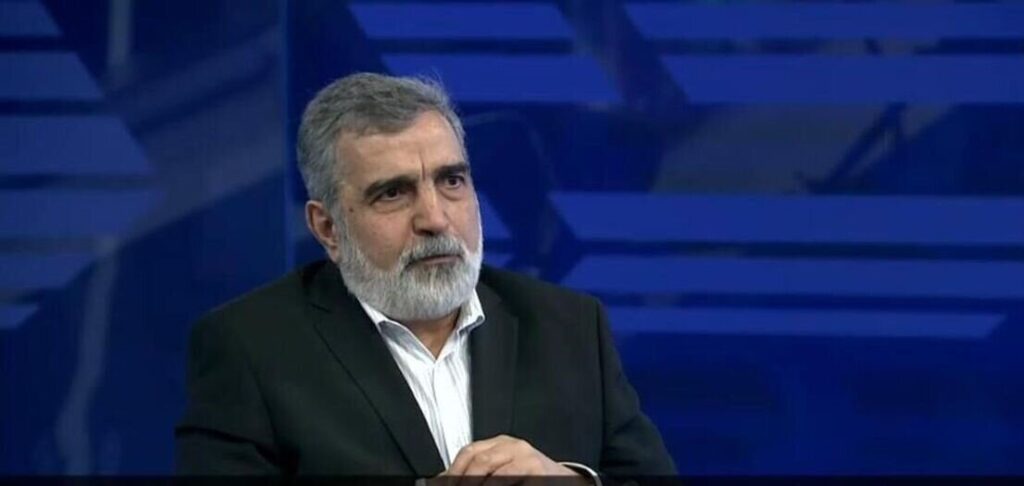Tehran – Bells Kamalbandi, deputy chief and spokesman for Iran’s Atomic Energy Organization (AEOI), has sharply criticized the IAEA’s recent report, revealing it relies on manufactured Israeli intelligence rather than legitimate safeguards data.
Speaking on Iranian television on Sunday on Iranian television, he said “not quoting protection information, but cites spy information from the Zionist regime.”
He recalled that the issues argued against Iran were resolved in the early stages of the Joint Comprehensive Plan of Action (JCPOA) from around 2015 until the US withdrawal in 2018.
Inspectors claimed they had detected “traces” of nuclear material, a daily discovery, but the IAEA itself confirmed that the material was unenriched natural uranium. Kamalvandi argued that the applied pressure was political and intended to require comprehensive reporting.
Regarding IAEA Director Rafael Grossi’s recent visit to Tehran, Kamalbandi revealed that Grossi had proposed to stop the uranium stockpile (which has not stopped enriching) and introduce a new inspector.
He described the report as a compilation of long-standing claims designed to portray Iran as uncooperative. “They want to bring political pressure to Iran to abandon its assets,” he argued, adding that the growing scientific achievements of Iran are increasingly unacceptable to countries seeking control.
Kamalbandi then worked to revoke Iran’s designation of several inspectors. He explained that Iran’s protest notes argued that the IAEA report is covered in legal terms while serving the political agenda.
Recalling the safeguard agreement, he emphasized that Iran has the right to accept or reject inspectors. Iran has revoked seven inspectors, but 120 still oversee the nuclear program. He also emphasized that the IAEA’s Tehran office (made with 70 staff) is unique and accounts for 22% of the agency’s global testing.
He further criticized the IAEA’s reliance on three sources. It is data from Iran itself, institutional information, and open or “third-party” sources.
Kamalvandi was particularly cautious about the “third party” category. It is noted that it frequently includes sources of spying that provide potentially unreliable information for political purposes, such as intelligence from the Israeli regime.
Resolved Issues, Sabotages and Tehran Warnings
Kamalvandi confirmed that the report attempted to resume long disintegrated issues such as the Metal Disc and Jaber Ibn Hayyan laboratory cases resolved after IAEA approval, or that the Ravisacia facility case was resolved in 2004.
He accused the IAEA of reviving these closed issues, noting that this approach is outside the legal framework.
Kamalvandi explained that Iran provided clues and videos to Deputy Director Massimo Aparo, deputy director of the IAEA on Turquzabad and Varamin to prove the interference.
Aparo admitted that his investigation was incomplete, but said that “the possibility of sabotage cannot be ruled out,” but the IAEA report provided little explanation.
Kamalvandi also explained that the Turquzabad inspector tracked certain coordinates to ask for a particular location, challenging the claims based on satellite images by claiming that the image does not match reality as the container can be engraved within a day.
He expressed disappointment at the IAEA’s handling of Israel’s threats to Iran’s nuclear facilities. Rather than completely condemning the threat, the Director commented on the complexity of the site and the difficulties of destruction. This is the stance that Kamalbandi criticized as being politically motivated.
Looking ahead, Kamalbandi warned that “they are moving in that direction” regarding another resolution against Iran.
He suggested that Western countries, particularly Europeans, act the so-called “snapback” mechanisms as political tools.
Nevertheless, he stressed that Iran fulfills its commitment and that a resolution alone cannot impose a snapback despite pressure.
He concluded with a harsh warning. “I warned them last time, but they didn’t pay attention, so we increased our 60% concentrated production by seven times. Now, we have prepared and notified a list of measures. Naturally, the agency should not expect Iran to continue constructive cooperation.”

